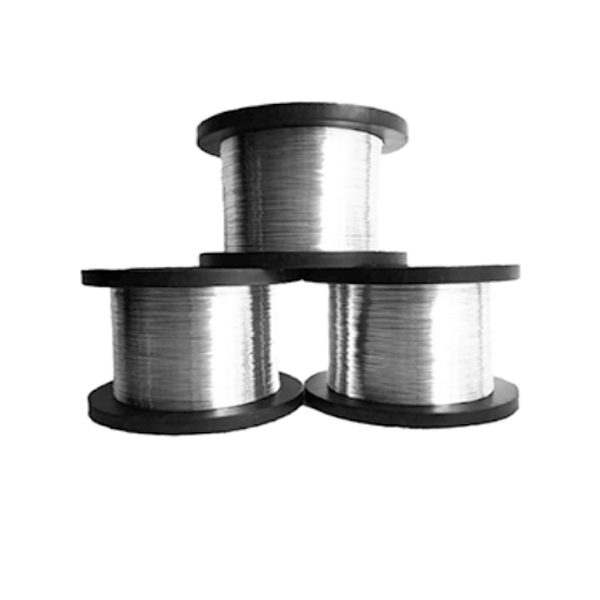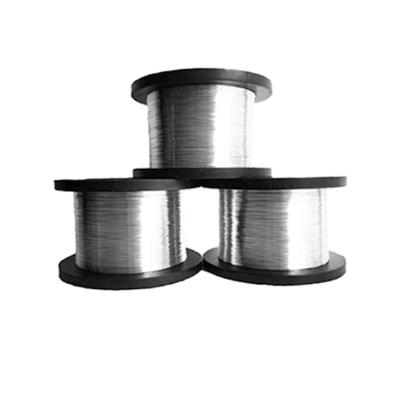If you're looking for a reliable and cost-effective material for your electrical and mechanical projects, tin plated nickel wire may just be what you need. This versatile wire offers a range of unique properties and benefits that make it ideal for various applications, from electronics and telecommunications to aerospace and automotive industries.
In this article, we'll dive into the details of tin plated nickel wire, from its composition and characteristics to its common uses and advantages over other types of wires. We'll also address some of the frequently asked questions about this wire and provide tips on how to choose the right one for your specific needs. So let's get started and explore the world of tin plated nickel wire!
Composition and Characteristics of Tin Plated Nickel Wire
Tin plated nickel wire is a type of metallic wire that consists of a nickel core coated with a thin layer of tin. The combination of these two metals creates a wire with unique properties that make it suitable for various industrial and commercial applications.
Here are some of the key characteristics of tin plated nickel wire:
High electrical conductivity: Tin plated nickel wire has a high conductivity level, which means it can transfer electrical current efficiently without losing too much energy as heat.
Corrosion resistance: Nickel is a highly corrosion-resistant metal, which makes tin plated nickel wire resistant to rust, oxidation, and other forms of degradation.
Solderability: Tin plating on the surface of the wire makes it easy to solder, as tin melts at a lower temperature than nickel.
Ductility: Tin plated nickel wire is highly ductile, meaning it can be easily shaped and formed into various configurations without breaking or cracking.
Strength and durability: The combination of nickel and tin creates a wire that is both strong and durable, capable of withstanding high temperatures, pressure, and mechanical stress.
Common Applications of Tin Plated Nickel Wire
Tin plated nickel wire is used in various industries and applications, thanks to its unique properties and versatility. Here are some of the most common uses of this wire:
Electronics and telecommunications: Tin plated nickel wire is often used in the production of electronic components, such as resistors, capacitors, and inductors. It's also used in telecommunications equipment, such as antennas, connectors, and cables.
Automotive and aerospace: Tin plated nickel wire is used in the manufacturing of automotive and aerospace components, such as sensors, ignition coils, and fuel injectors. It's also used in the production of aircraft engines, turbine blades, and other high-performance parts.
Medical devices: Tin plated nickel wire is used in the production of various medical devices, such as pacemakers, hearing aids, and neurostimulators. It's also used in surgical instruments, dental braces, and other orthopedic devices.
Jewelry making: Tin plated nickel wire is used in jewelry making as a base wire for wrapping beads, stones, and other embellishments. Its strength and durability make it ideal for creating wire-wrapped designs that can withstand everyday wear and tear.
Advantages of Tin Plated Nickel Wire over Other Types of Wires
While there are many types of wires available in the market, tin plated nickel wire offers several advantages that make it a popular choice for various applications. Here are some of the key benefits of this wire:
Cost-effective: Tin plated nickel wire is a cost-effective alternative to other types of wires, such as silver and gold wires, which can be more expensive.
High strength and durability: Tin plated nickel wire is highly resistant to mechanical stress and can withstand high temperatures, making it suitable for various industrial and commercial applications.
Corrosion-resistant: The combination of nickel and tin provides superior resistance to corrosion, rust, and other forms of degradation, making it an ideal choice for applications that require long-lasting performance.
High electrical conductivity: Tin plated nickel wire offers high electrical conductivity, which means it can efficiently transfer electrical current without losing too much energy as heat.
Solderability: Tin plating on the surface of the wire makes it easy to solder, allowing for easy and secure connections between components.
How to Choose the Right Tin Plated Nickel Wire
When selecting tin plated nickel wire for your project, there are several factors to consider to ensure that you choose the right type of wire for your specific needs. Here are some of the key factors to consider:
Wire diameter: The diameter of the wire will determine its electrical conductivity, strength, and resistance to mechanical stress. Choose the appropriate wire diameter based on the specific application and requirements.
Plating thickness: The thickness of the tin plating can affect the wire's solderability, corrosion resistance, and electrical conductivity. Choose the appropriate plating thickness based on the specific application and requirements.
Temperature range: Consider the temperature range of the application when selecting tin plated nickel wire, as some wires are better suited for high-temperature applications than others.
Environment: Consider the environment in which the wire will be used, such as exposure to moisture, chemicals, or other corrosive substances, and select a wire that is suitable for that environment.
FAQs
Is tin plated nickel wire suitable for outdoor applications?
Yes, tin plated nickel wire is highly resistant to corrosion and can withstand exposure to various environmental factors, making it suitable for outdoor applications.
Can tin plated nickel wire be used for high-temperature applications?
Yes, tin plated nickel wire is capable of withstanding high temperatures, making it suitable for high-temperature applications.
Is tin plated nickel wire easy to solder?
Yes, the tin plating on the surface of the wire makes it easy to solder, allowing for easy and secure connections between components.
What is the maximum length of tin plated nickel wire that can be produced?
The maximum length of tin plated nickel wire that can be produced depends on the wire diameter and manufacturing process. Contact the manufacturer for specific details.
Conclusion
Tin plated nickel wire is a versatile and reliable material that offers unique properties and benefits for various industrial and commercial applications. Its high strength, durability, corrosion resistance, and electrical conductivity make it an ideal choice for electronics, telecommunications, automotive, aerospace, and medical applications, among others.
When selecting tin plated nickel wire, consider the wire diameter, plating thickness, temperature range, and environment to ensure that you choose the right wire for your specific needs. With proper selection and installation, tin plated nickel wire can provide long-lasting performance and reliability for your projects.








